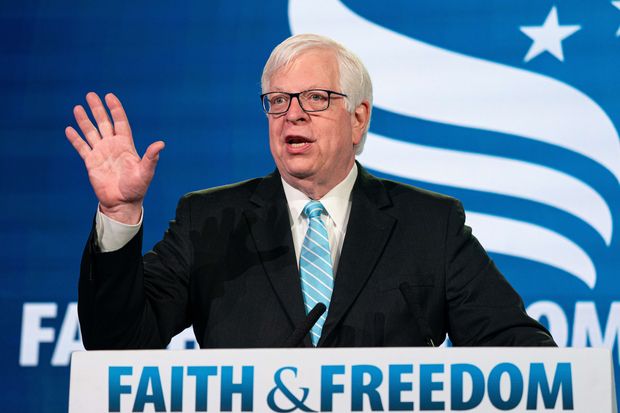PragerU, a popular conservative group whose videos have garnered billions of views since its founding in 2011, announced the launch of its educational resources for children.
In an announcement emailed to supporters on Monday, Prager said nearly 10,000 educators and parents have already joined PragerU Resources for Educators and Parents.
“Our schools are teaching that America is not a land of plenty, but a nation of systemic oppression and inequality. Students learn half-truths or lies to make them feel ashamed of being American,” the website states.
“PragerU Resources for Educators & Parents is a community committed to teaching our youth about America’s blessings and limitless opportunities.”
PREP vows to provide “pro-America resources and educational content for students grades K-12,” an online discussion forum for families, virtual events for parents and their children, a quarterly newsletter, and a digital kids’ magazine.
Jill Simonian, PragerU’s director of outreach for PREP, said in a statement that the program has already “received an overwhelmingly positive response from parents, guardians and teachers around the country.”
“Contrary to what the media would have us believe, most parents don’t want our children to have radical leftist rhetoric and doctrine jammed down their throats,” Simonian added.
“Rather, we want our children to love the values America was founded on, be freethinkers and take ownership of their ideas and actions. Our new shows and resources encourage critical thinking instead of stunting it.”
In 2019, the longstanding debate over what narrative on United States history should dominate public schools and popular culture heated up with the release of The New York Times’ “1619 Project.”
Developed by Nikole Hannah-Jones and named for the year that the first slaves arrived in colonial Virginia, the 1619 Project was a series of essays arguing that racism has fundamentally shaped American culture in various ways, including traffic patterns and diet.
“It aims to reframe the country’s history by placing the consequences of slavery and the contributions of black Americans at the very center of our national narrative,” stated the Times.
The Project has been the source of controversy, with many conservative activists and mainstream academics denouncing plans to include materials from the Project — for which the Times had to make numerous corrections due to its historical inaccuracies — into public school curriculums.
In a letter to the Times signed by Princeton historian Sean Wilentz, Brown University’s Gordon Wood, Princeton’s James McPherson and the City University of New York’s James Oakes, the historians listed factual errors in the Project that should be corrected and not re-published in any future materials, especially those for school curricula.
Last November, then-President Donald Trump signed an executive order creating the 1776 Commission, which had been created to promote a “patriotic education” for schools.
In January, days before President Joe Biden dissolved it, the Commission released a report denounced what it called “distorted histories” made by progressive intellectuals since the 1960s.
“This new education replaced humane and liberal education in many places, and alienated Americans from their own nature, their own identities, and their own place and time,” read the report.
“It cuts students off from understanding that which came before them. Like square pegs and round holes, students are made to fit the latest expert theory about where history is headed next.”
The Commission issued recommendations for creating an “authentic education,” including teaching Americans that they are all equal, encouraging the cultivation of “the love of country,” and relying “almost exclusively on primary sources.”
The American Historical Association, a prominent organization of professional historians that was founded in the 19th century, denounced the report from the now-defunct Commission.
“The report actually consists of two main themes. One is an homage to the Founding Fathers, a simplistic interpretation that relies on falsehoods, inaccuracies, omissions, and misleading statements,” the AHA argued in January.
“The other is a screed against a half-century of historical scholarship, presented largely as a series of caricatures, using single examples (most notably the ‘1619 Project’) to represent broader historiographical trends.”

